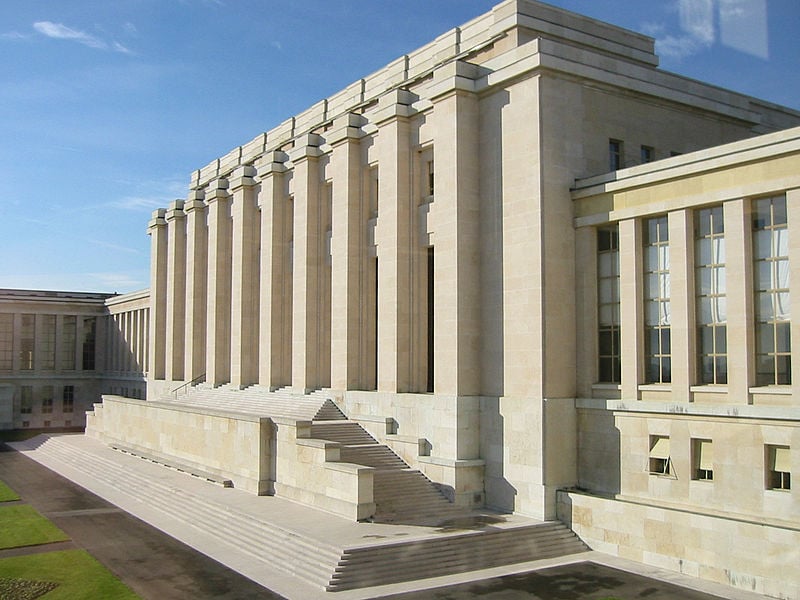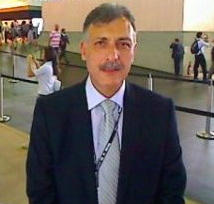By Ali Salem and Farah Waleed.

Tripoli, 18 January 2014:
In a snub to the UN, the continuing General National Congress has rejected . . .[restrict]taking part in the Geneva dialogue talks. At its regular Sunday session in Tripoli today, it said that it would attend only if the talks took place in Libya. It proposed the south-west border town of Ghat as the location.
It also demanded that certain principles had to be accepted before it could join the dialogue. One – upholding the objectives of the 17 February Revolution – is not seen as a problem: the head of the United Nations Support Mission in Libya, Bernardino Leon, has already stated that the principle underpins the dialogue. However, Congress also wants the UN and the delegates attending the talks to accept in advance the Constitutional Court ruling which, as far as it and its supporters are concerned, makes it the only legitimate legislature in the country.
Accepting the demand would effectively mean giving in to Congress before anything was decided.
There is no chance that many of those invited to talk part in the dialogue by Leon will accept this. The suggestion of Ghat, too, as the location, is also seen as a deliberate spoiler as there is little security there.
In a further challenge to the process, the GNC further demanded that its dialogue team arrange with UN the time, place and terms of the sessions, effectively rejecting everything that has happened so far. It authorised its president, Nuri Abu Sahmain, in liaison with the chief of staff Abdussalam Jadallah Obeidi, the Supreme Defence Council and the leaders of revolutionaries, to negotiate with Leon on all the demands.
According to one Congress member, others even wanted to limit delegates to just four from Congress and four from the House of Represetatives (HoR), rejecting the input of the many others invited by Leon.
There was not mention of a ceasefire in the statement issued by Congress and which, it laims, was voted by 100 of the 100 members attending today’s session.
The figure is being disputed by Congress opponents who claim that there were only 45 members in attendance.
Neither claim can be verified. No independent observers are allowed into Congress sessions and TV cameras do not show those in the hall.
Whatever the number, those attending Congress are known to be as divided as Libya Dawn on dialogue over the past couple of weeks and have been under intense pressure by both those who reject dialogue and those who support it. Congress was supposed to have decided on sending its delegation (which it had already chosen) to Geneva last Sunday but, unable to make up its mind, it postponed the decision until today, four days after the Geneva talks began. Then, on Wednesday, the day the delegates to the first session arrived in Geneva, Libya Dawn’s media office, a firm supporter of the rejectionists, announced that whatever the result of the talks, they would not be accepted because Congress members were not present.
Today’s decision is seen as not only a further bid to prevent talks, and as such a victory for the rejectionists, but also an attempt to avoid sanctions by claiming that Congress wants dialoague, albeit on its own terms.
It puts the ball firmly in Leon’s court. Last week, before the first dialogue session started, he indicated that sanctions would be imposed on those who did not want to take part in the dialogue.
The UN Security Council has also said that its Libya Sanctions Committee “is prepared to sanction those who threaten Libya’s peace, stability or security or that obstruct or undermine the successful completion of its political transition.”
It remains to be seen whether this will happen or whether Congress will be given another chance. It also remains to be seen if, in the absence of the Congress delegates, the next round of talks will reconvene in Geneva as planned on Tuesday or Wednesday. These are meant to also include representatives from a number of Libya’s elected municipal councils.
The rejectionists have been trying to stop them going and at least two councils invited, Suq Al-Juma and Janzour, have said they will not turn up. Both are firmly in the rejectionists’ camp.
Other municipalities which have been invited, including Misrata, Tripoli, Ghariyan, Zawia, Tawergha and Bani Walid, are thought to be planning to attend. [/restrict]









